Association of Candidate Gene Polymorphisms and Response to Interferon Treatment in Patients with Chronic Hepatitis C Virus Infection
Haiming Zhao
M.S., 2006
Advisor: Yingnian Wu
Hepatitis C virus (HCV) is a pathogen that chronically infects more than 1% of the world population and 2.7 million people in the United States. Chronic hepatitis C virus (HCV) infection is an important public health issue and a leading cause of chronic liver diseases in western countries. The most popular treatment for chronic HCV is interferon based therapy. The response to this therapy is determined by the interaction between the virus and the host immune response.
This study investigated the association of host genetic factors and the response to interferon therapy in chronic HCV patients. Totally 274 patients, 205 Caucasian or 69 African American with chronic hepatitis C virus infection (HCV) were recruited for this study. All patients were initially screened for anti-HCV antibodies using HCV ELISA. Serial serum samples were tested for HCV RNA using the Amplicor qualitative RT-PCR HCV assay. All samples were genotyped using either Illumina BeadArrayTM technology or ABI TaqMan allelic discrimination method.
The genes CCL8 (MCP-2) and CCL2 (MCP-1) were selected as candidate genes due to their important role in immunological response. Their polymorphisms were investigated for the association with sustained virological response to interferon therapy. Totally 14 SNPs in the two candidate genes were selected for the association analysis. Hardy-Weinberg equilibrium exact test was applied and one SNP deviating from the HW equilibrium was excluded from the analyses. Haplotypes were constructed for each gene. The allele frequencies, genotype frequencies and haplotype frequencies of these polymorphisms were tested using test for the association with response, adjusting for the race using Mantel-Hanszel formula. Three SNPs, RS2857657 in MCP1 and RS885691, RS3138039 in MCP2, were identified to be associated with the interferon therapy response rate, with p-value 0.043, 0.004, and 0.020 respectively. In addition, Multifactor Dimensionality Reduction method was applied to develop a predicting model for the interferon therapy response. However, the determination of functionality with these candidate gene polymorphisms was out of the scope of this study. The biologic functions would indicate more clearly why and how these polymorphisms affect the sustained virological response to interferon therapy in chronic HCV patients.
2006

